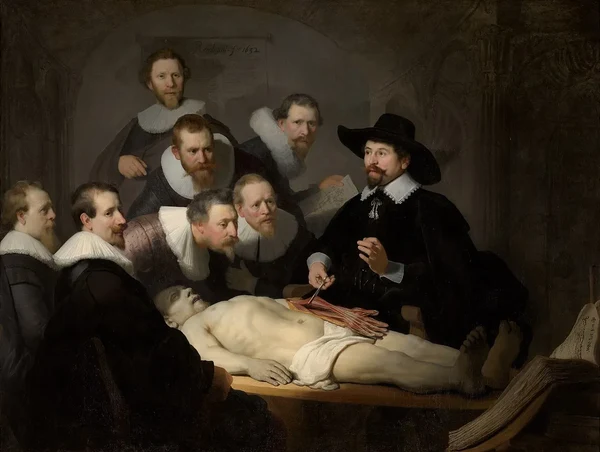Mirror:
Man shot by police for returning fire in self defense
Charles Williams Jr faced a fear that should shake all of us. The reality is that if you live in a predominantly white neighborhood like Charles does, he is faced with micro aggressions constantly. One of which is having the police called on him for no apparent reason.
In this incident, the Corinth Police in Denton County, Texas were called to Charles' home due to an alleged reckless driver in the neighborhood. The police said Charles' truck matched the description and ordered him out.
As you can see, Charles, as anyone of us, was upset that the police were called to his home for something he did not do. Before the video started, he had been asking police repeatedly to leave his property. When they refused and called more officers, he alerted the officers that he was armed and would protect himself while on his property.
Tensions already high, an officer without justifiable provocation began to shoot at Charles. Well within his right he defended himself, his wife and his home. Fortunately, he was survived being shot multiple times.
Unfortunately he's facing three charges of aggravated assault of a police officer. The maximum sentence he's facing is a life sentence.
He's facing LIFE in prison for defending himself and standing his ground.
Charles Williams Jr found guilty.
A jury — after seven and a half hours of deliberation Thursday — found Charles Williams Jr. guilty on all three counts of aggravated assault of a public servant in the attempted shootings of Corinth officers.
The verdict indicates that the jury did not find Williams shot at officers Archippus Daily, Jennifer Allen and Ashley Flack out of self-defense. Daily initially responded to Williams' home after a 911 caller reported he was driving while intoxicated on Feb. 2, 2021.
The court accepted the jury's verdict, and Denton County Sheriff's deputies took Williams into custody. The jury was mostly made up of white individuals. Including the alternate juror, there were five women and eight men.
Judge Lee Gabriel ordered the jury to return at 9 a.m. Friday to begin the sentencing phase of the trial. Williams faces five to 99 years, or life, in prison for each first-degree felony count.
Thursday deliberation, closing arguments
Judge Gabriel ruled Thursday morning that the jury could consider whether the shots were fired in self-defense.
Williams was alleged to have shot at Corinth officers Daily, Allen and Flack during what started as an investigation into Williams allegedly driving while intoxicated.
After deliberating for more than seven hours Thursday, the jury asked the court what to do if they did not come to a verdict by 5 p.m. Defense attorney Gina Morgan initially said she would object to the jurors being sent home for the day without reaching a verdict.
But, after Judge Lee Gabriel and the attorneys discussed the matter off-record and outside of the courtroom, the defense returned with a different position.
On the record, Morgan said that she did not object to the jurors going home. But she asked that the court order them to continue to deliberate into the night for as long as they desired. She said she did not want them to believe they were ordered to immediately stop deliberating.
Morgan also asked that Judge Gabriel emphasize to the jury the importance that if they did not reach a verdict before going home for the night, they could not access any outside information about the case.
Earlier during the trial, as Daily asked Williams questions like what his name was, witnesses testified that Williams was combative from the start and brandished a weapon, then holstered it. Flack testified that Williams became increasingly noncompliant and advanced toward officers, so she shot him with a less-lethal shotgun equipped with bean bag bullets, which she hoped would stun him into compliance.
Williams pulled out his gun and shot at the officers. Flack and Daily returned fire with lethal weapons. Allen said she did not shoot her firearm, testifying that while she believed her life was in danger, she wouldn't have been able to shoot without potentially harming one of her fellow officers.
Williams did not testify. But his wife, Iris Washington, testified that she feared for her and her husbands' lives and called out for her husband because she feared officers would kill him. She was shot by a stray bullet from an officer during the incident.
Out of the jury's presence Wednesday afternoon, prosecutors and defense attorneys argued before Gabriel on whether the jury should be charged with instructions to consider self-defense as a defense for assaulting the officers. Gabriel ruled Thursday that the jury could consider whether Williams was acting out of fear for his life in its verdict.
In the jury's presence Thursday morning, Gabriel read aloud the court's instructions for the jury's deliberation. At this point, the jury had heard all of the witnesses' testimony and seen the video evidence of the shooting.
In order to find Williams guilty of aggravated assault of a public servant, Gabriel said the jurors must believe beyond a reasonable doubt that Williams assaulted public servants with a deadly weapon, meaning that a reasonable person would've done the same as him in the same circumstances. If the jurors decided he did so, Judge Gabriel said they must decide whether Williams was justified in using that force.
To be justified in not retreating, the jury had to consider if Williams had a right to be at the location where he used deadly force. The location was directly outside his residence.
For the jury to consider him justified in not retreating, Williams must not have been committing another crime at the time he shot his gun.
The jury had to also consider if Williams reasonably believed his force was immediately necessary to protect himself in order for the jury to find him not guilty.
In order to find Williams not guilt, the jury had to decide that the officers did not do more than verbally provoke him. They had to also recognize that voluntary intoxication is not a defense in aggravated assault of a public servant.
Before the jury went into deliberation at about 10 a.m., the state and defense gave their closing statements. With the burden of proof, the state is entitled to give its final arguments first and last.
Prosecutor's closing arguments
Davis told the jury that they would need to consider whether in Williams' mind the force used against him made him believe it was immediately necessary to protect himself against the officers' force if the officers' force was unlawful.
Davis said it's obvious that Williams did shoot at the officers. But he told the jury to consider the force the officers used against Williams. The defense, Davis said, claimed this unlawful force was the less-lethal shotgun that Flack deployed, not when the officers “defended themselves” when they used their lethal weapons after Williams shot at them.
The jury would also need to consider whether any of Williams' actions were defensive in nature. Davis said Williams never acted as if he was just trying to go about his business or stop the interaction from happening. Instead, Davis argued that he “essentially dared” the officers to deal with him and readied himself for a fight by taking off his jacket, making sure they could see he had a gun.
Additionally, Davis said the jury would need to consider whether it was reasonable that Williams believed he needed to defend himself against the officers. Davis called Williams “an enraged intoxicated person” whose actions were influenced by the exact opposite of reason.
The jurors were also instructed to consider provocation. Davis said self-defense cannot be used when the defendant is the one provoking. Davis said that by stepping closer to officers, Williams was provoking Flack to use less-lethal force.
Davis asked the jury if Williams really thought it was immediately necessary to respond with “deadly force” after Flack shot him with a less-lethal shotgun.
The state defines a deadly weapon as “a firearm or anything designed, made or adapted for the purpose of inflicting death of serious bodily injury” or “anything in the manner of its use or intended use is capable of causing death or serious bodily injury.”
The prosecutors and defense disagreed about whether a less-lethal shotgun was a deadly weapon in this case.
When deciding their verdict, Davis asked the jury to remember that the officers are the alleged victims of aggravated assault in this case and are not the ones on trial.
Defense's closing arguments
While the officers might be the alleged victims named in Williams' indictment, Morgan said, Williams is the only one who has the presumption of innocence and therefore the only one who presumably did nothing wrong.
With multiple videos from different angles, Morgan said there is no doubt that Williams fired his gun. She said this is where the state wants the jurors' analysis to stop because “they're cops” and they “can use any force necessary” to get him to comply.
Morgan said Daily told the jury he didn't have probable cause yet to detain or arrest Williams. Williams and his wife were both shot during an investigation about a reckless driver. Morgan said people aren't allowed to question what happened “because they're cops.”
Posing questions to the jury, Morgan asked why officers only took statements from other officers and not Williams or his wife. She asked why the state didn't call any Texas Rangers to testify about their investigation into the officers' actions.
Morgan said that Williams repeatedly asked the officers to get off of his property and indicated that he didn't want to speak with them. The state said this was a consensual encounter, Morgan told the jury, but Morgan said Williams obviously didn't want to speak with them.
While the officers were investigating a possible driving while intoxicated case, Morgan argued that Williams was not committing another crime while shooting at the officers in self-defense. He was on his own property when he shot at police, she argued. Morgan said that if Williams was bound by state law, the officers are, too, arguing that Flack's “storming” up and shooting the less-lethal shotgun was unlawful because a less-lethal shotgun can be considered a deadly weapon.
Morgan said she can't think of a better scenario in which a person would need to defend themselves: Williams was scared, and his wife was scared. Morgan also argued that Williams never threatened the officers with his gun before Flack shot the less-lethal shotgun.
Provocation alone was not enough to prove Williams didn't act in self-defense, Morgan argued, because police deal with unruly people every day. That doesn't give them the right to shoot a subject, Morgan said. She said Flack's less-lethal shotgun was “a deadly weapon,” and Williams was in fear for his life.
Morgan asked if Flack could be in fear of her life when Williams was armed and uncooperative and used “deadly force,” then why can't Williams respond with deadly force? It would take “mental gymnastics” to believe Williams acted unreasonably, she said.
The defense does not have the burden of proving self-defense, Morgan said. Instead, the state has to prove Williams did not act in self-defense. Morgan said the state failed to prove that.
Prosecutor's final closing argument
If an officer is talking to a person, Doran said the defense's position suggests that when the person doesn't like what officers are saying, that person can pull out a gun, make sure officers see it, put it in their waistband and tell the officers they shouldn't “f---” with you.
What Doran said is “absurd” is that the defense is suggesting a person who is upset with officers' questions can scream, harass and threaten them until they leave. Doran argued that Williams started his interaction with officers at a level of 100. Doran refuted the defense's claims that Flack escalated the situation, saying that Williams had “every opportunity” to comply and he chose not to.
Doran argued that Williams' provocation was more than just verbal. Williams brought out the gun, had it in his hands and put it in an easily accessible position to threaten officers, then advanced toward them while yelling and clapping, Doran argued.
To remind the jury of the video evidence, Doran played a portion of the Ring camera footage that captured the shooting. The video began from the moment Flack shoots Williams with the less-lethal shotgun.
After he is shot with the bean bag bullets, Williams is seen brandishing his own gun. As his wife yells to him “no” and “don't”, Williams is seen moving to his right toward the space between the rear driver's side of the truck and the garage.
Daily is positioned at the front driver's side of the truck. Allen was standing behind Daily. Flack is to the side of the passenger side of the truck.
As Williams says he's “not the motherf---er”, he moves to the rear passenger side of his truck and shoots toward the front passenger side of his truck. When he shoots, Daily moves a short distance further to the front driver's side of the truck. Allen runs toward her squad car, which is parked in the street across from Williams' house.
Flack runs from the front passenger side of Williams' truck across Williams' yard, which is to Williams' left. Williams also moves to his left back out from behind the driver's side rear of his truck, yelling “b----” and shooting in the direction Flack traveled. With Williams not standing directly across from Daily, Daily shoots at him.
After Daily shoots, Williams turns his back to Daily and begins manipulating his firearm, possibly chambering another round. Daily shoots him again until he falls to the ground.
After the video stops, Doran argues that the footage the jury just saw did not display Williams being defensive. Doran argues that Williams yelling he's “not the motherf---er” the officers want to yell with as he goes to shoot the first time and then “b----” as he goes to shoot again, is aggressive, angry and reactionary.
Doran said that these are the actions of a man who is “aggressively hunting” officers. He asked that the jury find Williams guilty on all three counts.
The jury found mr. Williams guilty on all 3 counts & decided to impose a sentence of probation with any violation to result in the completion of a ten year prison sentence.









 Slavshit
Slavshit

 Sandshit
Sandshit

Jump in the discussion.
No email address required.
Denton county is one of the most corrupt municipalities in America
Jump in the discussion.
No email address required.
More options
Context